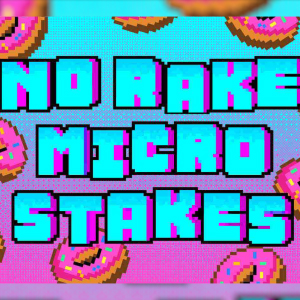How to Run a Poker Game
9 years ago

18 Mar
Poker player’s the world over will have run a ‘home game’ at some point – be it a family affair with mum as dealer, or a Friday night special with piles of snacks, boxing on the big screen, and beer in the fridge. Of course, if you’ve ever hosted one of these, or been to one, you’ll also know the old saying ‘If something can go wrong, it will go wrong’.
The Queen of spades is missing, the chips have been left at grandads, it wasn’t my turn to order pizza, what are the rules again? These and a hundred other silly little problems might pop up which means that the host – rather than relaxing and enjoying themselves too – ends up running about like an idiot trying to fix things.
Of course, there’s a way to avoid all this toil and trouble – be prepared! And here’s how…

Equipment
A game of poker won’t get far without all the bits and bobs required to play, so use this as a checklist in the days before your game.
- Cards – make sure you have at least two new decks of decent cards; dealing up a tattered old deck where an ace has mysteriously disappeared and everyone knows what the 5♣ is because it is dog-eared and coffee-stained is never a good start!
- Chips – investing a few bucks in a high-quality set of chips is almost never a bad idea. Work out how many you’ll need for the number of players and the type of game you intend to play (if it’s a tournament style evening with re-buys, for example, then you’ll need more chips!). You can even get special ones made up to your own design and specs – although pictures of the host on them is likely to open you up to being the butt of jokes all evening.
- Dealer Button – if you buy a tournament set of chips, then you’ll likely have a dealer button (and cards) included. It’s a must though; use a chocolate dollar left over from Christmas and it will probably disappear at the first signs of a hungry table! Speaking of tables…..
- Table – many people invest in a proper poker table (for their games room for example) but if that seems too expensive then there are cheaper versions available. You want to find a ‘Table-top’ which will fit over your standard dining table, with all the markings of real casino felt. If the budget doesn’t stretch to this either, just ensure you have a big table, preferably circular or oval, with plenty of room for everything – including drinks.

Organisation
A smoothly-run game requires a wee bit of planning and foresight, so give yourself time to set things up properly before the day of the game. Running in from work and trying to arrange the poker table, cook or order food, buy the beer and soft drinks - as well as having a shower and dealing with all the other things a busy life brings with it - is a sure-fire way to find yourself super-stressed instead of relaxed and able to enjoy the game and the company!
The Game
For those who regularly play ‘ home games’ with friends and family, you will already know which games you prefer. No Limit Hold’em is the one which almost everyone knows how to play, but if you are all quite widely experienced at poker you might want to consider playing H.O.R.S.E. with a round of each variant.
For any new players to your game, make sure you have a copy of the rules available (always a good idea in any event, just to decide arguments) although nowadays everyone and their dog can ‘google’ poker rules on their iPhones within a second anyway.
Stakes
It’s a good idea, and very polite, to make sure that everyone at the table can afford to play at the chosen stakes before the game starts! There is nothing more embarrassing than a friend finding himself a bit short of cash, and feeling uncomfortable with the amount of money at stake.
On the other hand, playing at reasonably high stakes is often a good idea, in order to add some spice to the game. Try to aim it at what the least wealthy of your friends or colleagues can afford to lose (though it shouldn’t include their house and marriage if they go home empty-handed!).

Feeding the hungry!
If you want to make your home game the one which everyone is still talk about a month later, make sure it’s not because you left them starving or having to raid your cupboards for crisps and snacks!
A buffet-style table is great so that players can indulge themselves when not in a hand. Try to make sure that vegetarians or those with dietary problems are catered for if necessary, and buy enough to feed an army. Poker players are notoriously hungry people!
Another popular way to feed guests is to have a take-away menu (or two) on hand and get people to order things as they arrive – then you can call it in and have it delivered at a later time, and everyone gets what they like – rather than force-feeding them tuna sandwiches because that’s all that was left over in the fridge!
Drink
Unless it’s a tradition at your home games to get seriously hammered while playing, don’t force your guests to partake in round-after-round of shots!
Ensure a supply beers and soft drinks (some people will be driving, and as host it’s definitely your responsibility to take their keys off them if they have more than a beer!) with a few bottles of the hard stuff in the cabinet for celebrating. You can always add an element of ‘winner/loser has to have a shot’ just for fun.
Timing
Again, not everyone can indulge in a 10-hour game! If it’s a weekend all-nighter that’s planned, you don’t really need to worry about this. But if it’s a ‘work-night’ starting at 7pm, say, then you will need to think about those who have to leave early, and structure the game accordingly.
Raising the blinds in a tournament every 20 or 30 minutes should do the trick, or setting a final time for cash games should ensure you get the maximum of action – but none of the problems when somebody wants to chase their losses or stay up late, while others are nodding off at the table.

Friends/strangers
If your game is made up exclusively of people you know very well, then disputes and arguments will happen, and the next day nobody will hold a grudge-or even remember why there was a n argument in the first place.
However, if the game is a mix of people you know, new colleagues and friends-of-friends, etc. then you might want to nip any arguments in the bud as soon as they begin.
Make sure everyone knows the score, so that your friends don’t take the piss out of your boss, for example, and leave you in the proverbial poo!
So, if you manage to do even half of what I’ve suggested, you’re well on the way to hosting a great home game. If PokerTube readers have any other suggestions, then help a friend by posting them in the comments section below!






Comments
You need to be logged in to post a new comment